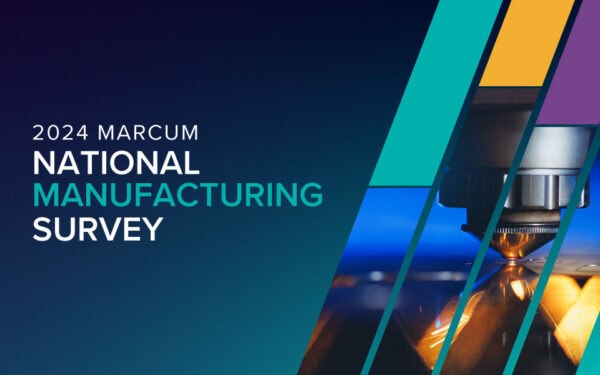Trends in Manufacturing: Navigating the Top 5 Business Challenges of Upgrading Your ERP System
By Benjamin Cook, Manager, Assurance Services
Preliminary results from our National Manufacturing Survey suggest that upgrading an Enterprise Resource Planning (ERP) system is at the top of many business leaders’ minds. Manufacturing is evolving quickly, and having an efficient ERP is crucial to staying competitive. An upgraded ERP system can drive productivity, enhance decision-making, and provide a competitive edge. However, the journey to upgrading an ERP system is fraught with challenges. Here, we explore the top five business challenges you might face during this transformative process and how to navigate them.
1. Cost of Implementation
The financial investment required to upgrade an ERP system is substantial. This includes not only the direct cost of the software but also associated expenses such as hardware upgrades, employee training, and potential operational downtime. Developing a comprehensive budget that accounts for these various costs is essential. Additionally, conducting a cost-benefit analysis can help in understanding the long-term ROI and justify the expenditures required to upgrade.
2. Disruption to Operations
One of the most significant risks of upgrading an ERP system is the potential disruption to daily operations. The transition period can lead to temporary declines in productivity and impact customer satisfaction if not appropriately managed. It’s crucial to have a well-defined implementation plan that includes phased rollouts, thorough testing, and contingency strategies to address unexpected issues. Clear communication with all departments can also help in minimizing disruptions.
3. Employee Training and Adoption
The success of an ERP upgrade heavily depends on the ability of employees to use the new system effectively. Resistance to change and the learning curve of new technology can be major hurdles. Investing in comprehensive training programs and providing continuous support can facilitate smoother adoption. Additionally, involving employees in the decision-making process and gathering their feedback can help create a sense of ownership and reduce resistance.
4. Data Migration and Integration
Migrating data from the old system to the new ERP system is complex and risky. Ensuring data integrity, consistency, and compatibility with existing systems is paramount. A thorough audit of current data and a robust data migration strategy can help mitigate risks. Employing data migration tools and seeking expertise from ERP consultants can also ensure a smoother transition.
5. Change Management
Upgrading an ERP system is not just a technological shift but a significant organizational change. Managing this change requires careful planning, effective communication, and strong leadership. It’s essential to align the new system with business processes and ensure all stakeholders are on board. Creating a change management team and developing a comprehensive change management strategy can facilitate a smoother transition and help achieve the desired outcomes.
Conclusion
Upgrading an ERP system in a manufacturing company is a strategic move that can drive efficiency and growth. However, the challenges associated with this process are significant. By understanding and addressing the key challenges—cost, operational disruption, employee training, data migration, and change management—you can navigate the complexities of an ERP upgrade and lead your organization toward a more efficient and competitive future.
Discussions surrounding the concepts of technology, ERP system implementation, and efficiency in manufacturing are timelier than ever. Investments must have results, and those results must pay dividends. Businesses understand that this topic is crucial for them not only to survive but to thrive as well. ERP challenges are just one of the many topics that will be discussed further during Marcum’s Manufacturing Forum on October 2, 2024. The forum will explore the trends and responses from this year’s National Manufacturing Survey and where manufacturers go from here.









